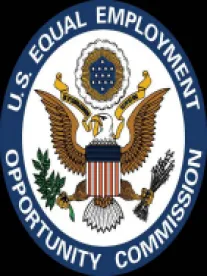The Equal Employment Opportunity Commission (“EEOC”) has issued two final rules addressing employer-sponsored wellness programs’ compliance with Title I of the Americans with Disabilities Act (“ADA”) and Title II of the Genetic Information Nondiscrimination Act (“GINA”). Both rules will become effective for health insurance plan years beginning on or after January 1, 2017 and will apply to all workplace wellness programs, including those in which employees or their family members may participate without also enrolling in an employer’s group health plan.
As we reported last April, the proposed rules issued by the EEOC sought to address the amount of incentive an employer can provide to encourage (but not coerce) participation in health risk assessments and other wellness program offerings. Under the final rules, the maximum incentive (or penalty) that is attributable to an employee’s participation in a wellness program that (i) asks questions about the employee’s health or that of a family member, or (ii) that includes a medical examination is set at up to 30 percent of the total cost of self-only coverage, taking into account both employer and employee contributions toward the cost of coverage.
Likewise, under the final rule addressing wellness programs under GINA, the value of the maximum incentive attributable to a spouse’s participation in a wellness program is also set at up to 30 percent of the total cost of self-only coverage. This represents a departure from the proposed rule, which set the maximum incentive for a spouse at 30 percent of the remainder of the cost of spousal/family coverage—now, both an employee and his or her spouse can each receive a maximum of 30 percent of the cost of employee-only coverage.
The final rules also provide guidance on calculating the limit on incentives for employees who are not enrolled in an employer’s group health plan. These rules provide:
-
where an employer offers a single group health plan but participation in a wellness program does not depend on the employee’s enrollment in that plan, the employer may offer an incentive of up to 30 percent of what the total cost of self-only coverage would be under that plan;
-
where an employer has more than one group health plan but participation in a wellness program does not depend on the employee’s enrollment in any plan, the employer may offer an incentive of up to 30 percent of the total cost of the least expensive self-only coverage of the options offered by the employer;
-
if the employer reimburses employees for buying insurance on a federal or state health care exchange, the incentive limit is 30 percent of: (i) the cost of self-only coverage under the second lowest cost “Silver Plan” available through the federal or state exchange; (ii) for a 40-year-old non-smoker, (iii) in the location of the covered entity’s principal place of business.
It is noted, however, that the final rule addressing wellness programs under GINA specifically prohibits offering or providing any incentives in exchange for receiving current or past health status information of employees’ children (including both adult and juvenile children). With regard to an employee’s spouse, the GINA final rule allows wellness programs to offer incentives to obtain information about a spouse’s “manifestation of disease or disorder,” but prohibits incentives that extend to receiving other genetic information about the spouse (for example, the results of a DNA test). The rule further reiterates the existing prohibition under GINA regarding the use by employers of any genetic information in making employment decisions.
Both the ADA and the GINA final rules make clear that wellness programs must be reasonably designed to promote heath and prevent disease. To that end, both final rules include confidentiality provisions ensuring that wellness programs actually seek to promote employee health and are not used as a means to collect sensitive medical information about employees or their family members or to impermissibly shift health insurance costs. In its Interpretive Guidance issued in conjunction with the final rule addressing wellness programs and the ADA, the EEOC recommends that, whenever possible, information collected about employees via wellness programs should be “firewalled” to prevent unintended disclosure to individuals involved in making employment decisions. The Interpretive Guidance further recommends that measures be adopted by employers and group health insurers to ensure the security of medical information being provided in connection with a wellness program.
Employers must also notify employees who participate in wellness programs as to how their information will be collected, used and shared. The EEOC has stated that it will be providing samples that will satisfy these notice requirements within the next 30 days.




 />i
/>i

